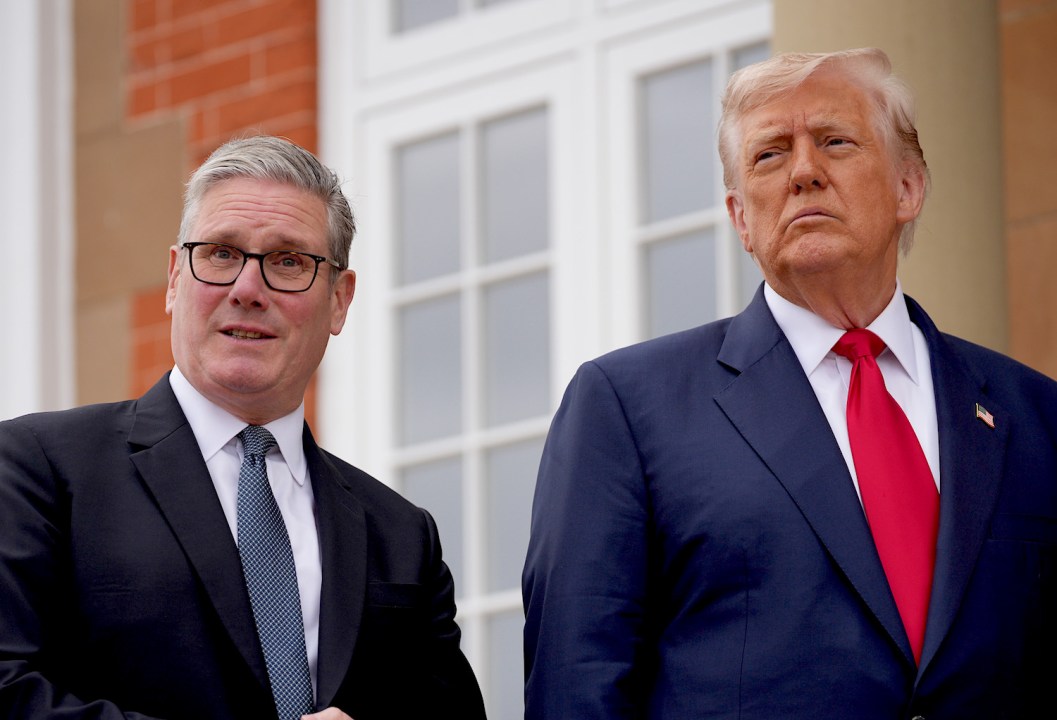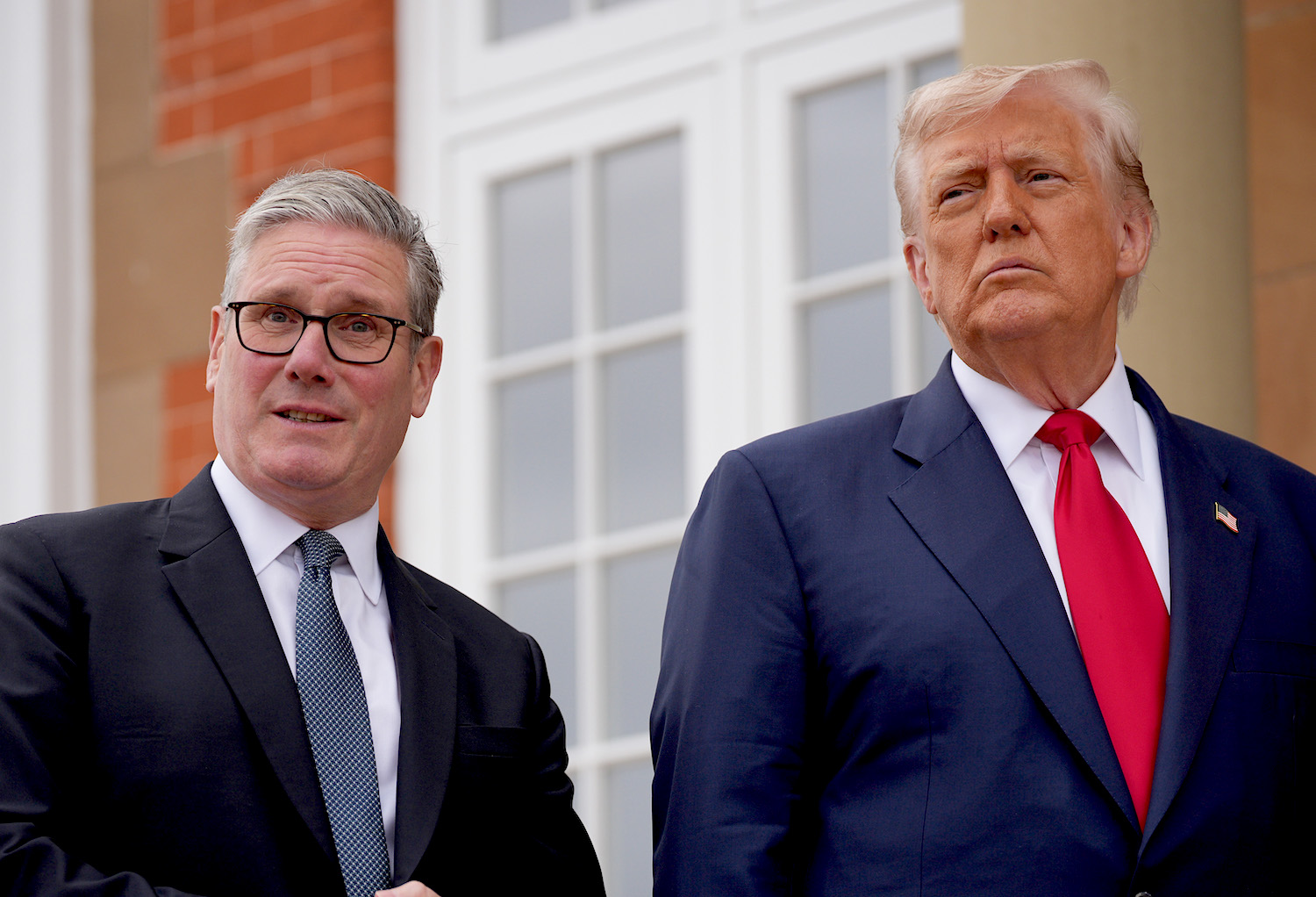Donald Trump’s second state visit to Britain this week is a spectacle, but the real significance lies away from the pageantry and protests. Instead, it forces a harder question: what does Britain want from America, and what does America want from us? The visit is a reminder that Britain’s relationship with Washington is not just a sentimental bond, but a strategic choice made in a world defined by geopolitical rivalry.
That rivalry is sharpening. The 1990s dream of a unipolar, American-led order has long gone. We are drifting into a world shaped by competition between two great powers, the United States and China. The logic of that contest is already evident: a world split into spheres of influence, one anchored in Washington, the other in Beijing. Medium-sized states like Britain cannot float above it all. At some point, they will almost certainly have to choose.
On the face of it, the decision is easy. America is a cultural cousin. We share a language, a legal system, a tradition of parliamentary democracy, an intelligence alliance and a history of fighting wars side by side. China, by contrast, is an authoritarian one-party state whose vision of world order diverges sharply from our own. Few in Whitehall would argue for aligning Britain with Beijing.
Yet the very obviousness of America as the partner of choice risks blinding us to the costs. The ‘special relationship’ is not a relationship of equals. It is already shading into dependence, especially in the economy and in technology. If Britain is to preserve any sovereignty in this new age of rivalry, it needs to recognise the asymmetry.
The scale of that dependence is striking. The United States now owns about a third of all foreign direct investment stock in the UK – slightly more than the entire European Union combined. That dominance translates directly into employment. Around 1.5 million British jobs are in US-owned companies, far more than are provided by any other country. The dependence is particularly acute in the sectors that matter most for Britain’s future. Of those jobs, about 22 per cent are in scientific, technical and IT services. American-owned companies generate 18 per cent of all turnover in that industry, despite making up just 1 per cent of total UK business units.
This dominance is not static, but is being reinforced. This week the government hailed the Tech Prosperity deal with Washington, reported as a major vote of confidence in Britain’s digital economy. The investment will certainly create jobs and bring in capital. Yet it also cements American platforms at the heart of our AI infrastructure and reduces the prospect of Britain nurturing sovereign capability of our own. The very projects designed to propel British technology forward risk entrenching our dependence on Silicon Valley for decades to come.
And in technology more broadly, the imbalance is already stark. Britain has no trouble generating start-ups. What it cannot do is grow them into global scale-ups. Time and again, promising British firms are sold early to American buyers. This includes the world-leading AI company DeepMind, bought by Google for $400 million, which is now one of the US companies leading the AI charge into Britain. This is good news for US investors, who acquire fresh talent and intellectual property, but problematic for British sovereign AI companies who are being swamped by American firms. Our innovation pipeline is becoming an annex of America’s digital economy, not a rival to it, with the result that Britain consumes American platforms rather than producing national alternatives.
Artificial intelligence, quantum computing, cybersecurity, and cloud services are the new commanding heights. If Britain lacks independent capability in these areas, it is beholden to American providers. That may seem convenient while the occupant of the White House is friendly, but it leaves us acutely exposed should American politics turn hostile – or merely transactional.
And transactional is exactly what Trump represents. His instincts have never been for internationalism or sentimental alliances. Even if the President is half British and a royalist, his politics is America First. For Britain, that means the very areas where we are dependent – jobs tied to American firms, cloud services run on American servers, investment shaped by American venture capital – are precisely the levers an assertive White House could pull. In an economic dispute, Washington could turn the tap off with consequences far more immediate than tariffs on steel or Scotch whisky.
None of this is an argument for pivoting to Beijing. China is not an alternative ally for Britain. But nor should we imagine that American alignment comes without costs. The real question is whether Britain approaches the clash of great powers as a capable partner to the United States, or drifts into dependency. And this will depend on whether we build up our own economic and technological strength.
For too long, British politicians have spoken of it as if it were a family tie
That means thinking seriously about how to scale our technology sector. Britain must stop celebrating quick exits and start building national champions that can rival American and Chinese giants. It means reforming our capital markets so that domestic firms can raise serious money without looking to New York. It means investing in sovereign capacity in AI, semiconductors and quantum – not because we expect to out-compete Silicon Valley overnight, but because a degree of self-reliance is essential if we want resilience in a crisis.
Above all, it requires a new candour about the ‘special relationship’. For too long, British politicians have spoken of it as if it were a family tie, immune to the logic of power. But America is a great power, not a benevolent cousin. It pursues its interests, and those interests do not always coincide with ours. Britain should continue to align with Washington, but it should do so with clear eyes and a firm grip on its own interests.
Trump’s visit, with its toasts and motorcades, may obscure these realities for a few days. But the deeper question lingers. If the next decade is defined by US–China rivalry, Britain will almost certainly side with America. The task is to ensure that in doing so we remain a sovereign ally, not a dependent appendage. If we fail, the ‘special relationship’ will not be our shield, but our price.








Comments